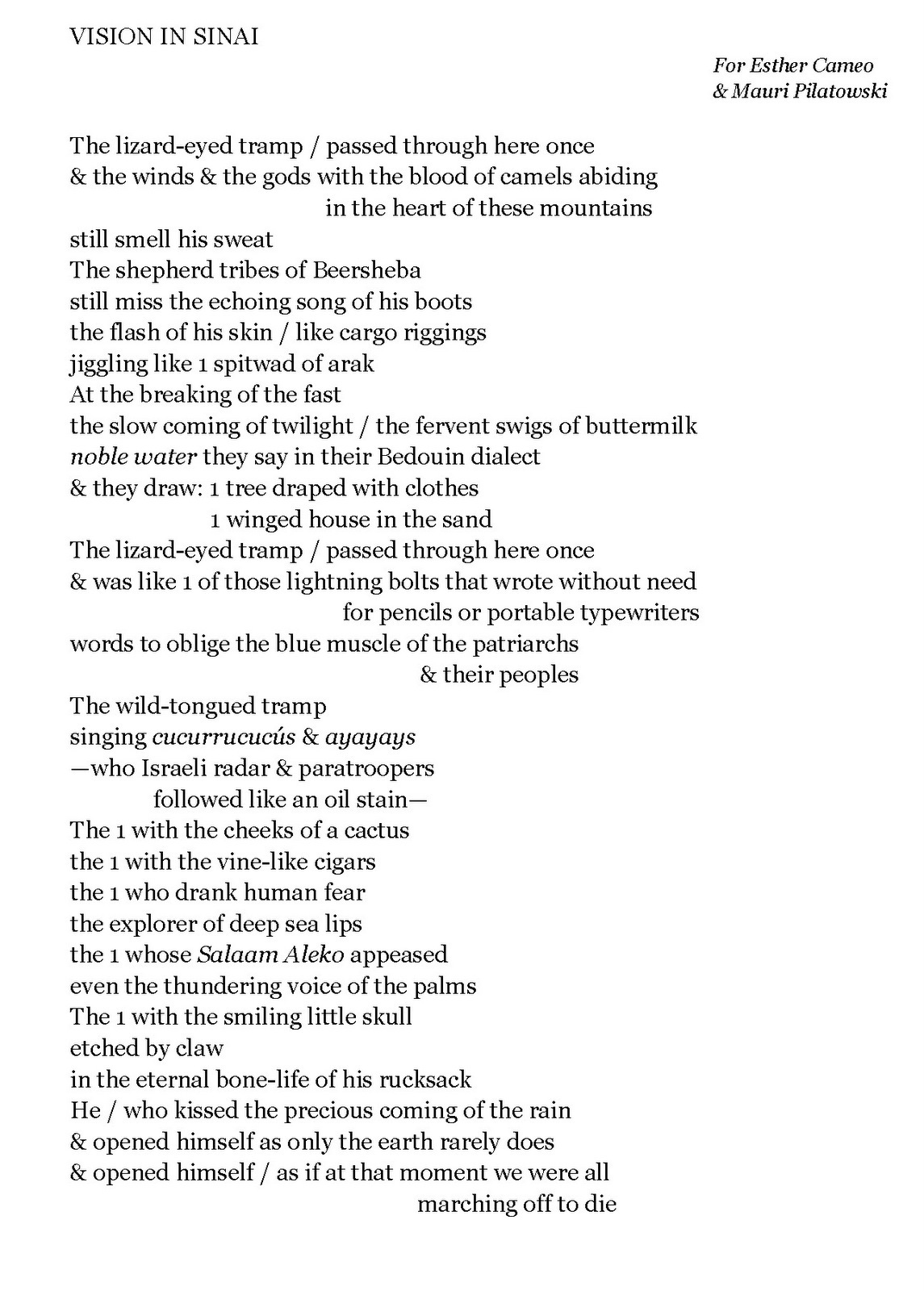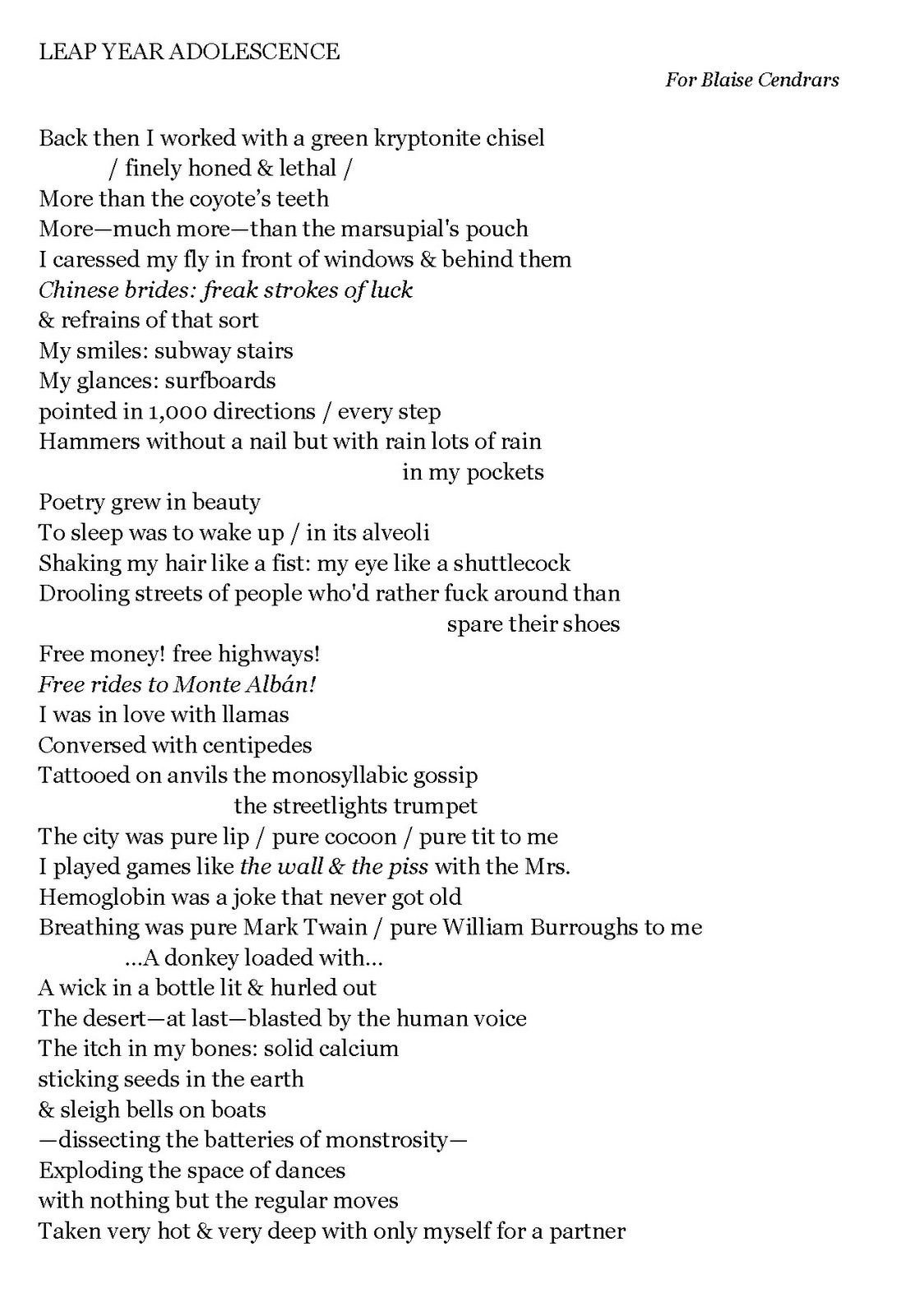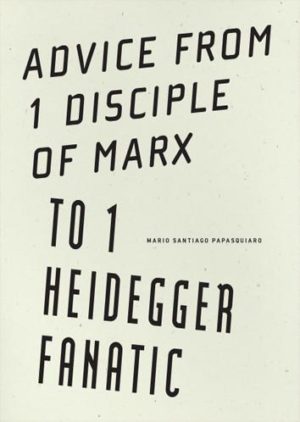In Their Own Words
Cole Heinowitz on the poetry of Mario Santiago Papasquiaro
On the poetry of Mario Santiago Papasquiaro
Mario Santiago Papasquiaro is the pseudonym of José Alfredo Zendejas Pineda, the poet immortalized as Ulises Lima in Roberto Bolaño's novel The Savage Detectives. Born in Mexico City in 1953, Santiago came of age during a period of acute political repression, artistic censorship, and violations of academic autonomy that culminated in the 1968 Tlatelolco Massacre, in which hundreds of student protesters and bystanders were killed and injured, and over a thousand were arrested. The literary society Santiago encountered when he began writing poems in 1974 was stultifying and conservative. Turning for inspiration to Surrealism, Stridentism, the Beats, and Latin American avant-gardes such as the Peruvian group, Zero Hour, Santiago and a handful of friends—among them Bolaño—founded the revolutionary poetry movement, Infrarrealism.
According to Santiago, the Infrarrealists were "[r]adical vagabonds, fugitives from the bourgeois university" and state-sanctioned culture. They wrote from the streets, not from drawing rooms and lecture halls. They attacked the institutionalized pieties of intellectual abstraction with raw physicality and psychedelic vision. They spoke the voice of the thief, the addict, the tramp, and the madman, not the voice of Octavio Paz or the PRI. As Santiago announced, "What was contained now overflows / what has been silenced is now spoken with the arms and legs / what was invisible now has weight and mass / it has the flavor of a mouth forced open / a flavor of armpits and trees / what was barely a voice is now voice, mouth and spit." The Infrarrealists engaged in what Santiago referred to as "cultural terrorism," sabotaging poetry workshops, interrupting the readings of prominent literati to declaim their own poems, smashing cocktail glasses, and starting fistfights. Infrarrealism was an all-out assault on the reigning literary establishment; its aim, in the words of its founders, was "to the blow the lid off the brains of official culture."
Santiago's early long poem, Advice from 1 disciple of Marx to 1 Heidegger fanatic—now considered the canonical poem of Infrarrealism—seethes with the disillusionment and rage of a generation whose radicalism was violently suppressed, whitewashed, and narcotized by consumerism, a generation
…running from the tear gases
& billy clubs of the major avenues
of the major & minor stains that can't be removed
with Pine Sol or the stroke of 1 Kleenex
those who ignore who they are / & don't even want to know
Advice from 1 disciple of Marx to 1 Heidegger fanatic rails against a world so in thrall to capitalism and the state that "any guy who screams Help!" has to dial "the 911 of his consciousness / to find out what brand of life or garbage it suits him to kiss / to spit out or to look at in horror." Yet even at "the hour when the great political rebellions seem buried," Santiago sees in this chaos "the instinct of the struggle for existence / that made Rosa Luxemburg euphoric" and insists that a "poem is occurring every moment," even if "nobody manages to decipher / how much of it is trash & how much miracle."
For Santiago, the most outspoken and absolute of the Infrarrealists, the consequences of such a position were institutional ostracism and silencing. In the spirit of Bolaño's Infrarrealist Manifesto (and its deliberate echo of Breton), Santiago decided to "drop everything" and "take to the road," leaving Mexico in 1977. He was a thief in Paris, a fisherman on the coast of France, a political prisoner in Vienna, a day laborer in Spain, and a kibbutznik in Israel. When he returned home at the end of the decade, Mexican literary culture was unchanged, and as utterly hostile to Santiago as ever. He wandered through the labyrinths of Mexico City for days on end, always writing—in the margins of borrowed and stolen books, on the covers of magazines, on the edges of receipts, used napkins, and paper bags—on any available surface, however impermanent. As a result, much of Santiago's work exists only in fragments. What mattered to Santiago was not the perfectly polished poem, the product of mechanical labor, the poem as commodity, but rather poetry as a way of moving through the world, a way of being that remained faithful to the extremes and vacillations of his existence, a poetry that embodied the first principle of Infrarrealism: that art and life, ethics and aesthetics, must be "one-single-thing."
Over the years, Santiago's poems trickled out in small infrarrealist magazines and anthologies. In the mid-nineties, he released the only two books to be published during his lifetime, Eternal Kiss (1995) and Swan's Howl (1996), both under his own imprint, East of Eden. At the time of his death in 1998, he left behind over 2,000 poems. In 2008, the Fondo de Cultura Económica published an anthology including about one tenth of this work, Jeta de Santo [Holy Mask], edited by Mario Raúl Guzmán and the poet's widow, Rebeca López. In 2012, Almadía released a collection of Santiago's unpublished writings, Arte & Basura, edited by Luis Felipe Fabre. But the majority of Santiago's work still remains unpublished. In fact, much of his writing may have yet to be discovered...





